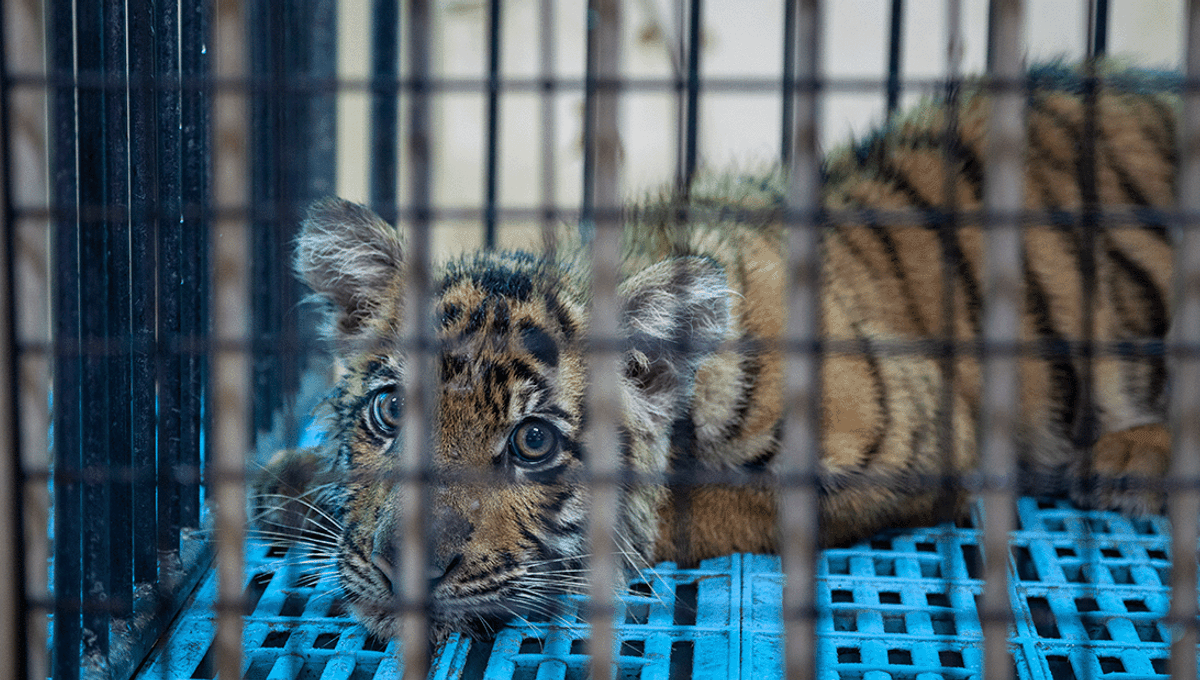
While it might have been a runaway sensation over lockdown, the 2020 documentary Tiger King brought to light some truly shocking revelations about the practice of keeping big cats, such as lions and tigers, in private collections and roadside zoos in the United States. Even more worrying than the fact that more tigers exist in captivity in the US than remain in the wild, was the practice of cub petting, where organizations, like the one run by the self-proclaimed “Tiger King” Joe Exotic, charge customers to have hands-on interactions with all manner of baby big cats.
Now the US Senate has passed the Big Cat Public Safety Act, which is on its way to President Biden’s desk to be made law. This is the most likely outcome given that Biden has already expressed public support for the act.
The bill was passed by the House of Representatives in July. Now it has been passed by the Senate, H.R 263 will help ensure the welfare of captive big cats and the safety of those who choose to visit them by requiring facilities to obtain a federal permit for big cat ownership. In addition, the bill prevents the public from petting and posing for photos with cubs. This is a huge win for animal rights campaigners.
“An extraordinarily cruel era for big cats in the US finally comes to an end with the passage of the Big Cat Public Safety Act. We’ve been fighting for this moment for years because so many so-called ‘Tiger Kings’ have been breeding tigers and other big cats to use them for profit,” said Kitty Block, president and CEO of the Humane Society of the United States and CEO of Humane Society Legislative Fund, in a statement.
Cub petting helps fuel a relentless profit cycle, with young animals often abandoned or even killed after the 12 week age limit when they become too dangerous for the public to handle. While the bill does not ban the existing ownership of big cats, it will require those who wish to breed them to acquire a license. The act has also been endorsed by those in law enforcement who risk their lives when these animals escape from private collections.
“Following the Senate’s historic approval of the Big Cat Public Safety Act, this essential legislation is finally very close to becoming law,” said Susan Millward, executive director of the Animal Welfare Institute, in a statement. “We must end the exploitative and dangerous trade in pet big cats, and ensure that no more cubs are ripped from their mothers at birth to be traumatized for profit.”
It is even hoped that the success of this act could inspire action for big cats and other animals, such as primates, kept in private pet collections around the world.
“We need to use the momentum generated by the Big Cat Public Safety Act, and the proposals to end the keeping of pet primates in the UK, to curb the trade in all species as exotic pets across the world, for the sake of animal welfare, conservation, and human health and safety,” said Dr Mark Jones, Born Free’s Head of Policy, in a statement.
Source Link: The End Of Tiger King? US Senate Passes Big Cat Public Safety Act